Unlocking the Secret of Iron-Rich Foods in Vegetarian Diets
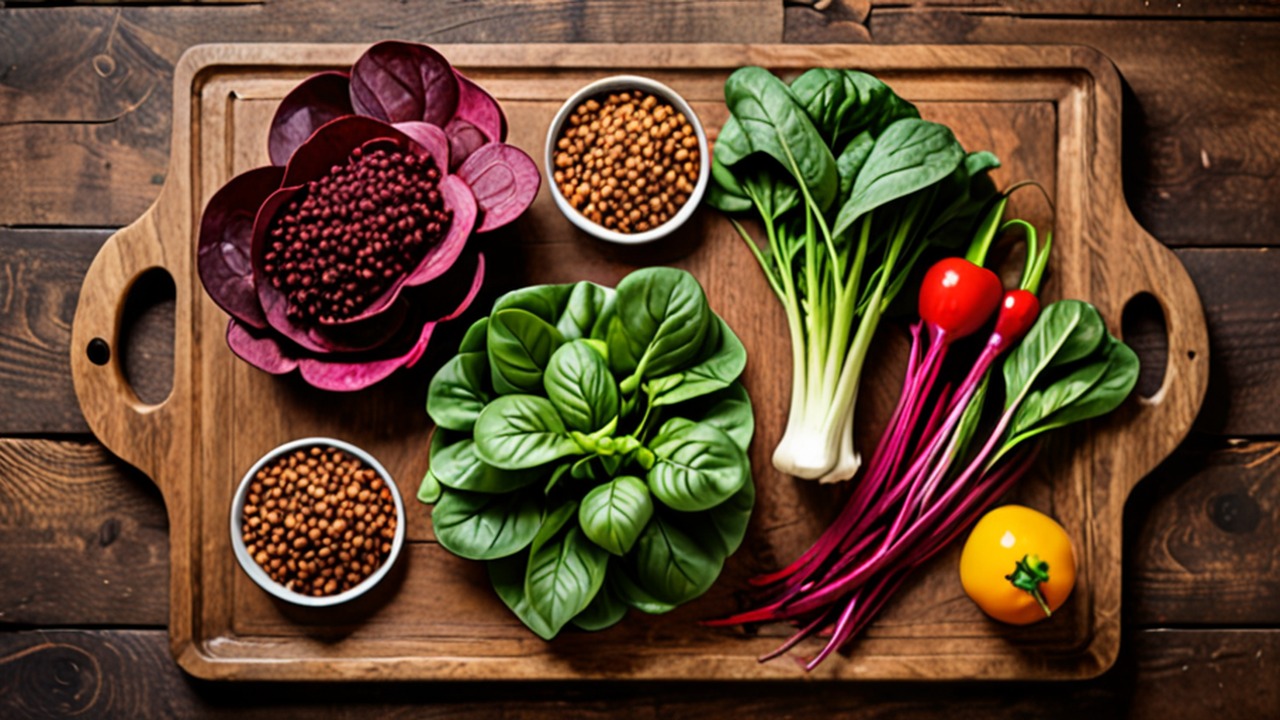
Highly likely to be human. You’re all set! This content reads as if it is human written. Embracing a vegetarian diet not only decreases the probability of chronic diseases like heart disease, diabetes, and particular cancers but similarly establishes a healthy weight management scheme.
If you’re exploring iron-rich foods for a vegetarian lifestyle, it’s reassuring to know that with careful planning, your diet can sufficiently meet your iron needs, eliminating the concern of iron deficiency commonly misconceived with vegetarianism.
Loading your plate with whole grains, beans, nuts, and those vibrant green veggies is a surefire way to meet your daily iron goals.
When concentrating on iron-rich foods vegetarian sources, it’s fundamental to consider that a diverse and well-balanced diet assumes a vital part in forestalling lack of iron.
We’ll be mapping out a feast of vegetarian options teeming with the key ingredient – Iron! Plus offering neat insights into turbocharging absorption because merely hitting the mark doesn’t quite cut it anymore.
Whether you’re a carefully prepared vegan or considering doing the switch, understanding how to integrate these iron-rich food sources into your eating regimen successfully is fundamental for keeping up with ideal well-being and energy levels.
Understanding Iron and Its Importance.
Imagine iron as a VIP nutrient; without it, creating hemoglobin – a critical player in transporting oxygen via red blood cells – would be impossible.
Besides pumping up your muscles with oxygen through myoglobin, this powerhouse is vital for whipping up important hormones.
Iron Requirements and Sources
Daily Iron Needs: The amount of iron you need varies by age, gender, and physiological status. For example, adult men and women aged 19-50 require 8 mg and 18 mg per day, respectively, while pregnant women need 27 mg daily.
Sources of Iron: Iron is naturally present in many foods and added to fortified products. It’s available in supplements typically as ferrous sulfate or ferric citrate.
Iron Absorption Challenges in Vegetarian Diets
Bioavailability: Plant-based iron is less readily absorbed by the body, with less than 20% typically utilized. It turns out that substances including phytate from grains or seeds along with bitter elements found across vegetables known as “oxalates” are surprisingly skillful at blocking our bodies from hanging onto necessary minerals like iron!
Increased Needs: Vegetarians might need up to 1.8 times more iron than non-vegetarians due to these absorption challenges.
Understanding these points of iron in your eating routine aides in overseeing admission correctly, particularly for vegan where iron sources are narrowed, and assimilation rates are lower.
Exploring Rich Sources of Iron in a Plant-Based Menu
When adopting a vegetarian diet, it’s crucial to include a variety of iron-rich foods to meet your daily requirements and prevent iron deficiency. If you’re eating meat-free and looking for iron, here are the best picks to keep your levels up.
Beans and Legumes:
Consider lentils your new best friend for meals – they’re not just filling; they come bursting with proteins and fibers too. Cook up a cup of this, and you’re looking at gobbling down 6.6 mg of your daily needs – that’s a whopping 82% closer to meeting your goal.
Let’s talk about chickpeas – those tiny but mighty beans that can transform meals from meh to marvelous with their rich texture and nutty flavor. Scoop up a cup of this cooked goodness, and you’re packing in 4.7 mg—yep, that hits the mark at 58% of your daily needs.
Have you ever thought much about red kidney beans? A single cup of this cooked dish packs a hefty 5.2 mg, covering an impressive 65% of your daily needs.
For those who love their meals with a side of health benefits, look no further than the humble navy bean. They’re not just tasty; they pack a nutritious punch too: Cooking up a cup of this gives you 4.3 mg, nailing over half the daily need at 53%.
Loaded with nutrients and steeped in cultural history, black-eyed peas offer more than just good taste: You get a hefty 4.3 mg of the good stuff in every cooked cup, nailing over half your daily needs at 53%.
Diving into the world of nuts and seeds, shall we?
Now, onto a favorite snack – pumpkin seeds. You’re getting a whopping 11.4 mg of goodness in every cup when dried, shooting past the recommended daily amount by 140%!
Diving into the world of sesame seeds here! Picture this: every cup of dried snacks delivers an impressive punch with 21 mg (hello, soaring past the RDA at 262%). Then there’s tahini – just two tablespoons serve up a neat little boost of its own, offering up to sixteen percent.
From your salad to your smoothie, cashews bring a burst of creaminess and nutrition that’s hard to beat. A cup of whole packs a hefty punch, offering 7.8 mg and covering nearly all (97%) of your daily needs.
Veggies and fruits.
Consider spinach your go-to for a healthy kick; it’s not just tasty but also loaded with vitamins. Scoop yourself a cup of this cooked goodie, and you’re banking on ingesting 5.7 mg of essential nutrients, hitting the mark at an impressive 71% of your daily needs.
Imagine giving your dishes a healthy kick – that’s exactly what you get when you toss in some fresh Swiss chard: When you cook and eat a cup of this, you’re packing in 3.9 mg—covering a solid 48% of what your body needs each day.
Ever wonder about the green part of beets? It turns out; those leaves are edible delights filled with health benefits: A single cooked cup packs in 2.7 mg—nailing down about 33% of your daily needs.
Imagine holding a ripe mulberry; its rich flavor and bright colors are unforgettable : 2.6 mg per cup (32% of RDA)
Fortified Foods and Others:
- Fortified cereals: These often contain about half of all dietary iron in the U.S.
- Dark chocolate: 7 mg per 3-ounce serving
- Blackstrap molasses: 3.6 mg per tablespoon
Including these foods in your diet can significantly contribute to your daily iron intake. For better iron uptake, why not pair your iron-packed meals with something rich in vitamin C? It’s like giving your body a VIP pass to absorb more iron efficiently.
Maximizing Iron Absorption
To effectively maximize iron absorption from your vegetarian diet, consider the following strategies:
- Combine Iron-Rich Foods with Vitamin C:
- Consuming foods rich in vitamin C alongside iron-rich foods can significantly enhance iron absorption. Include fruits like oranges, strawberries, and bell peppers in your meals to increase non-heme iron absorption.
- Mind Your Consumption of Iron Inhibitors:
- Certain mixtures found in food varieties and refreshments can restrain iron absorption. Avoid drinking tea, coffee, and eating foods high in calcium or phytates with your iron-rich meals. Instead, consume these items between meals to minimize their impact.
- Preparation Techniques to Reduce Inhibitors:
- Soaking, sprouting, and fermenting grains and legumes before cooking can decrease phytate levels, which in turn enhances iron absorption. Additionally, cooking with a cast iron pan can add trace amounts of iron to your food.
Beside applying these practices, you can advance ideal iron holding and effectively regulate iron levels in your veggie diet.
Incorporating Iron-Rich Foods into Your Diet
Integrating iron-rich food varieties into your veggie diet is fundamental for keeping up with iron stores and supporting your general well-being. Here are a few hints to guarantee you’re getting sufficient iron from plant-based sources:
Start Early with Iron-Rich Solids: From around 6 months of age, introduce your child to solids that are rich in iron, protein, and energy to support their growth. Incorporate foods from all five food groups gradually, focusing initially on those high in iron.
Daily Iron-Rich Food Choices: As a vegetarian, it’s crucial to include iron-rich foods in your meals throughout the day. Keeping up with your iron intake is crucial; it not only tops up your levels but also keeps the wheels of your body’s daily operations turning smoothly.
Understanding Iron Needs: Vegetarians typically have lower iron stores, making it important to consume almost double the recommended daily intake (RDI) of iron compared to non-vegetarians. This variety makes sense of for the lower bioavailability of iron from plant sources.
Supplementation Strategy: Routine iron supplementation is not generally recommended for those on a vegan diet. As an alternative, focus on a varied diet that includes plenty of natural iron sources. Most of the time, this strategy should cover your iron needs without you having to turn to supplements.
Common Pitfalls to Avoid
When adopting a vegetarian diet, there are several common pitfalls you should be aware of to ensure your iron intake is sufficient:
Inadequate Iron Consumption: Not consuming enough iron-rich foods is a frequent oversight. Include a variety of iron-rich plant sources like lentils, chickpeas, and spinach regularly in your meals to avoid iron deficiency.
Ignoring Absorption Rates: The iron from plant sources has a lower absorption rate compared to animal sources. To take all the iron your body needs, team up foods with something rich in Vitamin C like oranges or those colorful bell peppers.
Nutrient Inhibition: Be cautious of the timing when consuming tea, coffee, and calcium supplements, as they can inhibit iron absorption. It’s best to enjoy these a few hours before or after your iron-rich meals.
Additionally, consider these nutritional tips:
Calcium and Zinc Needs: Both calcium and zinc are crucial for vegetarians but can compete with iron for absorption. Balance their intake throughout the day rather than consuming them with iron-rich meals.
Vitamin B12 and D Considerations: Especially for pregnant women and breastfeeding mothers on vegetarian or vegan diets, supplements for hard-to-obtain nutrients like B12 and vitamin D might be necessary.
Risks of Excessive Supplementation: While iron supplements can quickly boost iron levels, unnecessary supplementation should be avoided as it can lead to serious health issues, including organ damage in severe cases.
By being aware of these factors, you can really control your iron consumption and nutrient balance in your veggie diet.
Monitoring Your Iron Levels
Monitoring your iron levels is crucial, especially when adhering to a vegetarian or vegan diet. Here are actionable steps to ensure you maintain adequate iron levels:
Regular Blood Tests:
Complete Blood Count (CBC): This test measures the amount of iron in your blood, helping identify iron deficiency anemia.
Checking your iron storage? A Ferritin Test is what you need. Imagine unlocking the secrets to your body’s iron treasure chest – that’s exactly what this does, revealing how well-stocked you are.
Recognizing Symptoms of Iron Deficiency:
Look out for signs such as fatigue, weakness, pale skin, and dizziness.
Low iron could be the sneak thief behind your constant headaches, shortness of breath, and that foggy feeling when trying to concentrate.
Consultation and Supplementation:
Consult a healthcare practitioner if you experience symptoms of iron deficiency or to discuss your iron levels.
After looking over your test results, getting some iron supplements might just do the trick to keep those levels in check.
Alongside by integrating these practices into your daily schedule, you can effectively oversee and screen your iron admission, guaranteeing ideal well-being on a veggie or vegetarian diet.
Conclusion
Maintaining optimal iron levels on a vegetarian diet is achievable through mindful food choices like legumes, nuts, seeds, and greens. It is vital to upgrade iron ingestion. Mastering the art of living vegan involves thoughtful preparation plus awareness – it’s where eating well supports both personal wellness and Earth’s well-being.
RELATED POSTS
The Best And Interesting Foods For Optimal Brain Health
Being passionate about maintaining optimal brain health has always been intrigued by the impact of nutrition on cognitive function. Our cerebral mechanism, governing our perceptions, sentiments and conducts, is undeniably the body’s most indispensable entity.
From Thin to Thick: The Best Herbal Supplements for Hair Growth
When it comes to hair growth, many of us are on a never-ending quest for thicker, fuller locks. There is a plethora of products on the market claiming to promote hair growth, but one natural and effective solution to consider is herbal supplements.
The Best Whole Foods Vegan Desserts For Health-Conscious
As a health-conscious individual, you understand the importance of nourishing your body with wholesome ingredients. When it comes to desserts, many people assume that indulgence and health cannot coexist.
FOLLOW DISCOVERY BLOGGER
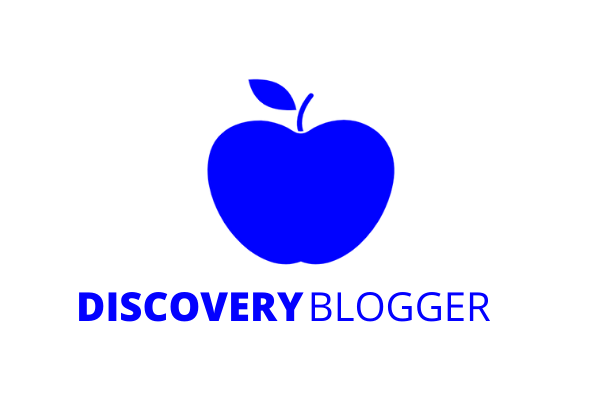

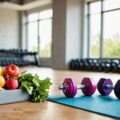
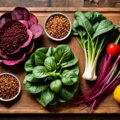
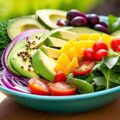

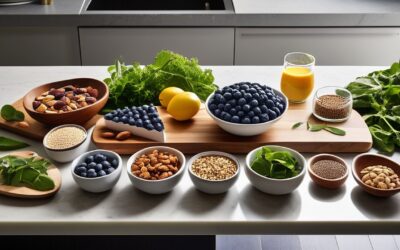
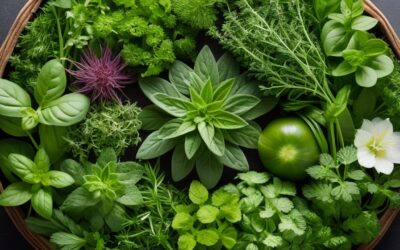

0 Comments